Bosnian Muslims Commemorate Anniversary of Srebrenica Massacre
Thousands of solemn mourners gathered in the town of Srebrenica in Bosnia on Thursday, 11 July to remember the 1995 massacre of Bosnian Muslims, less than two months after the United Nations established a memorial day to mark the genocide.
On July 11, 1995, Bosnian Serb forces, under the command of Ratko Mladic, captured the eastern Bosnian town—then a UN-protected enclave—and killed more than 8,000 Muslim men and boys over the following days. It was the worst massacre in Europe since World War II, and two international courts ruled it as genocide.
"It's hard when July comes. They ended up like this only because they had a (Muslim) name," said Mevlida Hasanovic as she prayed at the tomb of her cousin, who was 18 when he was killed. Hasanovic lost a dozen male relatives in the massacre, including her father and husband, whose grave is next to her cousin's. His remains were buried twice as they were found in two different mass graves. The 54-year-old woman is still waiting for "at least one bone" of a brother to be found so she can bury him, she told AFP.
"Their souls know that we are here next to them. When I get here, I feel as if we just parted ways in Srebrenica," she said.
In May, the UN General Assembly adopted a resolution declaring July 11 the International Day of Reflection and Commemoration of the 1995 Genocide in Srebrenica. The resolution was fiercely opposed by Serbia and Bosnian Serbs, who continue to downplay the crime.
Bosnian Serb leader Milorad Dodik has repeatedly denied a genocide occurred and says his administration will not recognize the resolution. However, Dodik expressed sympathy to the families of the victims on Thursday.
"Regardless of our differences, we must show respect for the pain and suffering that has befallen many people of all nations and religions in Bosnia and Herzegovina," Dodik said on X.
A UN court sentenced Bosnian Serb wartime political leader Radovan Karadzic and his army chief Ratko Mladic to life in prison for war crimes, including the Srebrenica genocide.
Bosnia's 1992-1995 war between its Croats, Muslims, and Serbs claimed approximately 100,000 lives. Nearly three decades after the war ended, the Balkan nation remains deeply divided along ethnic lines.
Historical Context
On July 11, 1995, as Bosnian Serb units captured Srebrenica, commander Ratko Mladic falsely reassured the terrified civilians, stating, "All who wish to go will be transported, large and small, young and old. Don't be afraid... No one will harm you." In reality, the forces began a systematic massacre that lasted for 10 days, murdering more than 8,000 Bosniaks (Bosnian Muslims).
The massacre took place in what had been declared a UN "safe area," yet lightly-armed UN peacekeepers did nothing as the violence raged around them. Former Secretary-General Kofi Annan later declared, "The tragedy of Srebrenica will forever haunt the history of the United Nations."
Bosnia-Herzegovina declared its independence in 1992, which was recognized by the US and European governments. However, the Bosnian Serb population boycotted the referendum and, supported by the Serbian government, attacked the newly formed country. They began a policy of ethnic cleansing to create a "Greater Serbia," targeting Bosniaks, most of whom are Muslims.
The siege of Srebrenica began in 1992, with Bosnian Serb forces capturing the town before it was retaken by the Bosnian army. Despite the UN Security Council declaring it a "safe area" in 1993, the siege continued, leading to starvation and death among the residents.
In July 1995, Bosnian Serb forces attacked Srebrenica in earnest, capturing the enclave within five days. Gen Mladic walked triumphantly through the town, and the killing began the next day. Muslim refugees were evacuated, but men and boys were separated from the crowds and executed. Thousands were buried in mass graves, some reportedly buried alive.
Survivors and Victims
On Thursday, the remains of 14 more victims, including a 17-year-old boy, will be buried at a memorial cemetery in Potocari, just outside Srebrenica. Beriz Mujic, whose remains were found last year, will be laid to rest next to his brother Hazim. The remains of 6,988 Srebrenica victims have been buried, most of them under white tombstones in Potocari. The remains were found in 87 mass graves, and Bosnia's institute for missing persons is still looking for around 1,000 people.
Kada Sikovic, accompanied by her two daughters and son, stood by the coffin of her husband, Musan, with tears rolling down her face. Parts of his chin bone were recovered in 2010, but she had resisted holding a burial ceremony until more remains were found last year. "Thank God we found some of his bones," she told AFP.
On Wednesday, the European Union, which Bosnia aspires to join, called the atrocity "one of the darkest moments in modern European history." "There is no place amongst us for those who deny genocide, attempt to rewrite history, and glorify war criminals," EU foreign policy chief Josep Borrell and the bloc's enlargement commissioner Oliver Varhelyi said in a joint statement.
The Srebrenica massacre remains a haunting reminder of the horrors of ethnic cleansing and genocide, with new mass graves and bodies of victims still being discovered 29 years after the genocide.
Source: NEWS WIRES
Disclaimer
The views expressed in this article are the author’s own and do not necessarily mirror Islamonweb’s editorial stance.

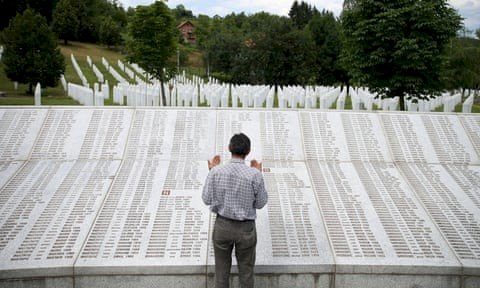



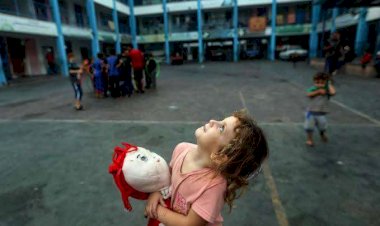
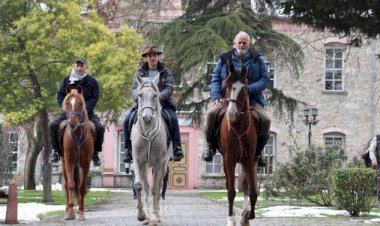
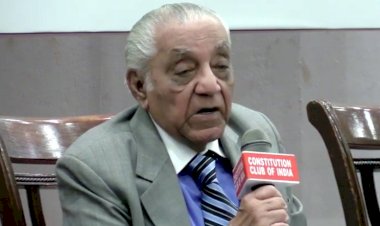
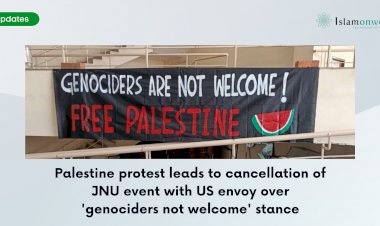
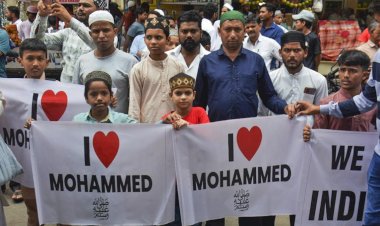














Leave A Comment